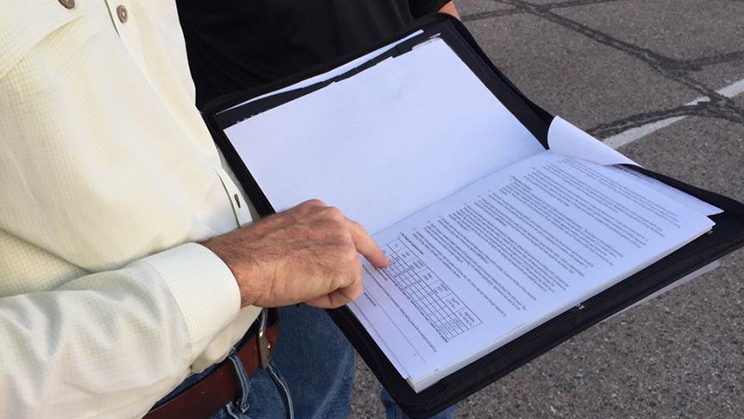

Challenge the Way You Budget for Pavement Maintenance
If you have limited visibility of your pavement portfolio, you could be under- or over-spending on maintenance. Over time, this takes a toll on your budget and the bottom line. But, there is a better way to manage spending even when you are remote.
The solution is pavement assessments. These reports provide visibility into the condition of your pavement assets so you can implement proactive maintenance strategies, which lead to consistent scheduling and spending from month-to-month. Pavement assessments can also help you answer the following six questions, which can be particularly helpful as you budget for parking lot maintenance in 2024.
Six Key Questions–
Before you begin budgeting, consider these six questions and, if you can’t answer them, consult a professional to perform an assessment:
- Do we have the right pavement maintenance budget? Assessments provide detail of pavement condition within your portfolio. This will ensure you are allocating funds in the appropriate places. In addition, assessments can provide insight into budget needs beyond the current year, thus helping you plan ahead on future capital and expense needs.
- Are we prioritizing the right projects? Within an assessment, specific areas of a property are assigned a rating to explain the relative condition or quality of pavement and then the property is rated as a whole. Once rated, properties can be compared and prioritized according to condition, repair needs, and budget available.
- Are we performing the right scope of work? Pavement assessments can provide you with detailed scopes of work covering recommendations based on your requirements and specifications. In addition, every site is different and may require different products and processes. Assessments will recommend materials that are best suited for the repair, based on a variety of site-specific factors, along with method of application.
- Are we driving consistency across our portfolio? You have a brand standard to uphold which, at its core, aims to deliver a consistent customer experience from site-to-site. Just one section of a property failing to meet the standard could impact the overall brand image. Routine assessments keep data fresh and enable accurate budgeting so you can afford ongoing maintenance. The result is consistency in pavement condition, regardless of location.
- Are we getting apples-to-apples bids to evaluate true cost? Each contractor scopes a site differently, depending on his or her knowledge of the area, the customer, and other factors. Getting 2-3 bids that are different in scope makes it difficult to decide which bid to accept. In cases like this, the lowest bid is not always the best bid. Assessments provide you with one scope of work that is best suited for that site (as explained above) and can be used to solicit multiple bids quoting the exact same work, which makes contractor selection much simpler and saves you money in the long run.
- Are we getting what we pay for? To ensure that you continue to accurately budget and perform the right repair at the right time, be consistent with pavement assessments. Enlist the help of a specialist to assess your portfolio every 2 to 4 years. The data accumulated will help you compare properties over a specific time period, easily chart degradation, and modify your strategy long term.
A final note about assessments and budgeting. Both require proper time and planning to ensure a solid outcome. Do not short change the process as it can have downstream effects on your budget and condition of your properties. The success of an initiative like this is dependent on the partnership and commitment of all stakeholders involved in the process. For more information on assessments, please contact us.




